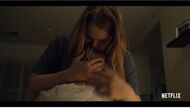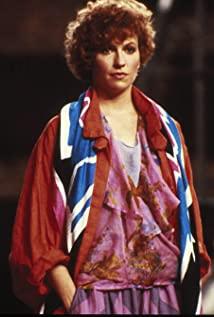In the final episode, the serial rapist, like many perpetrators of serial killings, comes out to teach the police. To sum it up, if you served snacks the first time I committed a crime, there would be nothing behind it; but because you didn't, it contributed to my progress and the tragedy of that bunch of women.
Look back at what happened to Marie in the first episode. She was not forced to take a bath, and she did not know how much DNA of the perpetrator was left on her body. Early that morning, she reported the case and went to the hospital for the required examination. As the story progressed, these questions kept popping up in my mind: Where did her test results go? And what about the results of the crime scene investigation? So just based on a few suspicions from her adoptive mother and the pile of pasts that can't make her a perfect victim, she can be placed in the position of calling the false police without any thought? Are you still angry at her humiliating her and forcing her to admit the answer you want? Why report her to the false police?
What is it that makes them not care?
I want to combine this question with the questioning of the murderer by the hostess grandmother in court - "Tell me, what did I do to make you choose me, and you tell me, then I will never again for the rest of my life. do this." The killer did not give an answer. From the women he picked, he had no apparent preference. As for the prey, he almost refuses to come, as long as they can let him in. On this level, he seems to be a fair man.
But the police handling Marie's case had a preference. Between the adoptive mother, who was well-dressed and capable of giving, and Marie, who had lost her father since childhood and had been in various foster homes and institutions at the age of three, they chose to believe the former and quickly terminated the investigation; A lot of information can help them better judge the authenticity of this case.
So if we want things to stay on track from the start, we can't allow our adoptive mother to be talkative. If we want the adoptive mother to take back those doubts, it first needs to erase Marie's mischievous dance on the wooden table, blowing out birthday candles, and other life experiences that may have made this child try to attract attention. In addition, Marie needs to be sad enough not only to not happily play with the cart when she goes to the supermarket to pick out sheets with another adoptive mother, but also to stubbornly ask the salesperson to go to the warehouse to find out if there is any stock of daisy sheets.
Only in this way will she be like a raped victim, worthy of justice.
After watching the whole drama, I have a new question: If Marie's life experience was a little more perfect, such as she could be born into a healthy family and not need the care of adoptive mothers, would things be different? Or, if there is a worse possibility, such as that the perpetrator is from a family with "someone on it", just as the female police detective initially suspected the black cop, then is it possible that even if the police are equally committed to finding the truth, they cannot Get today's results?
The show doesn't discuss the role of class in more depth. But it's hard for me not to think about the power that class may have in reality.
Shouldn't there be a positive ending? At least, there are people like those two female detectives in this world. Well, they are the light of life. But it's still not enough to erase the under-examined dark side.
In a moment like this, it's hard not to think about it. What ordinary people can do is, as Marie once said, "pray that bad things don't happen again". Then, through the shimmering light of those angel-like people, choose to continue to live, and no longer try to give up your life.
View more about Unbelievable reviews











